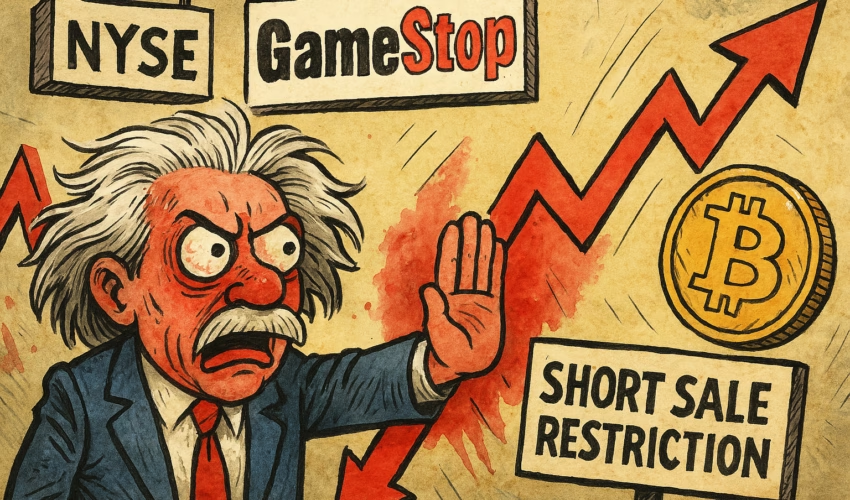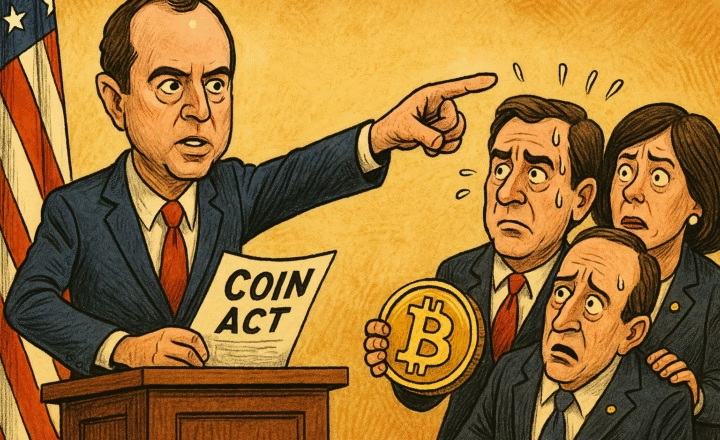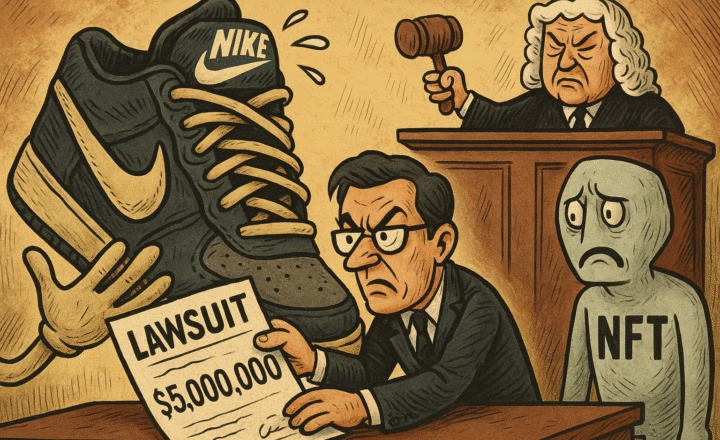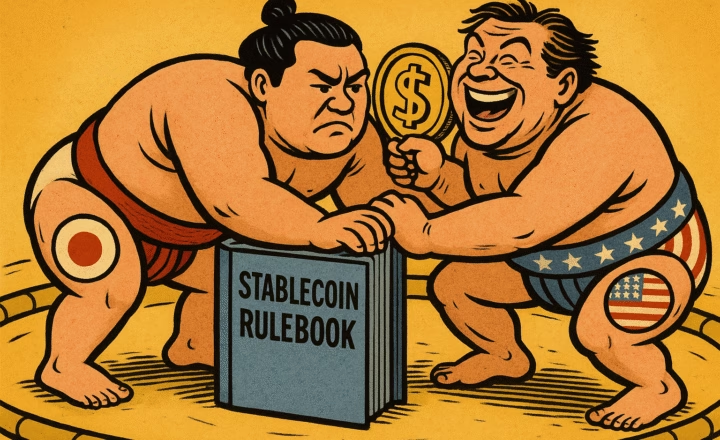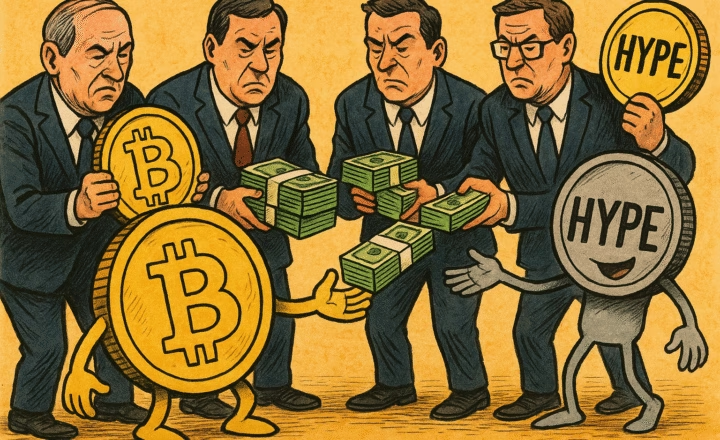GME faces heavy shorting and market skepticism following Bitcoin acquisition plans and convertible note offering
Overview
GameStop (GME) has come under intense market pressure after announcing plans to purchase Bitcoin, leading to a surge in short-selling activity and triggering a Short Sale Restriction (SSR) on the New York Stock Exchange (NYSE). The restriction follows a sharp intraday price decline of 22% on March 27, which erased previous gains related to its crypto pivot.
According to TradingView, GameStop’s short sales volume surged 234% in a 24-hour span, reaching 30.85 million shares sold short, the highest level since its historic short squeeze in January 2021. The SSR rule is automatically activated when a stock falls more than 10% from the previous day’s close and remains in effect for the remainder of the trading day and the following session.
At the time of writing, GME shares are trading at $22.09, a sharp pullback from recent highs following renewed retail interest.
Short Volume Near 2021 Levels — “Not Statistically Possible”?
The spike in short volume has drawn comparisons to GameStop’s 2021 short squeeze, when the stock rallied from below $20 to nearly $500 amid retail-driven pressure against institutional short sellers. On January 19, 2021, GameStop’s short volume peaked at 33.26 million shares.
Kevin Malone, CEO of Malone Wealth, commented on the recent spike via X (formerly Twitter), stating:
GameStop Corp $GME traded 50x more shares today than last Thursday. Not statistically possible without naked short selling. pic.twitter.com/vBIL8IeFc6
— Kevin Malone (@Malone_Wealth) March 27, 2025
“GameStop traded 50x more shares today than last Thursday. Not statistically possible without naked short-selling.”
While naked short-selling (selling shares that have not been borrowed) is prohibited under U.S. securities laws, allegations of it occurring during major price swings have frequently surfaced, especially in meme stock communities.
The highest single-day short volume on record remains June 3, 2024, when GameStop saw 46.2 million shares shorted, coinciding with the return of Keith Gill, the retail investor known as “Roaring Kitty,” who disclosed a $180 million GME position.
Bitcoin Plans Draw Skepticism
GameStop’s renewed volatility comes just days after the company announced plans to purchase Bitcoin and issued a $1.3 billion convertible note offering after markets closed on March 26. However, details remain scarce — the company has not disclosed how much Bitcoin it intends to buy or a defined timeline for doing so.
The announcement has been met with market skepticism, with some analysts comparing it to the speculative fervor of the dot-com bubble. Speaking to Yahoo Finance, Tom Sosnoff, CEO of Tastylive, said:
“It feels a little dot-comish… like adding a .com to your name. Buying Bitcoin with excess cash because you can’t find a meaningful acquisition target.”
eToro analyst Bret Kenwell echoed these concerns in comments to Reuters, noting:
“Investors are not necessarily optimistic on the underlying business.”
These doubts appear to have contributed to the stock’s sharp selloff, despite a brief rally on the initial announcement.
Convertible Notes: Strategic Move or Short Catalyst?
GameStop’s convertible senior notes—debt that can later be converted into equity—are expected to be used for “general corporate purposes,” including the Bitcoin acquisition. However, the market reaction suggests investors view the move as dilutive in the short term.
Analyst Han Akamatsu drew parallels between GameStop’s current trajectory and MicroStrategy’s (MSTR) approach in 2021, when the company issued $1.05 billion in 0% convertible notes to fund Bitcoin purchases. MSTR’s stock initially dipped as short sellers hedged against the dilution but later surged as Bitcoin rallied.
“GME is following the same blueprint now… If GME or BTC goes up a lot, the trade gets very interesting as we have a squeeze opportunity here,” Akamatsu posted on X.
This playbook involves hedge funds shorting the stock to hedge convertible notes, which can later be unwound if the stock or Bitcoin price rallies sharply—setting the stage for another potential short squeeze.
Investor Takeaways
For investors and traders, GameStop’s latest developments present both risks and speculative opportunities:
-
High Short Volume = Volatility: The SSR-triggering short spike suggests a potential short squeeze setup, but timing and market sentiment remain critical.
-
Convertible Notes Add Dilution Risk: While GameStop is raising capital, converting debt to equity may dilute shareholder value if GME’s price falls further.
-
Bitcoin Exposure = Proxy Volatility: GameStop could effectively become a Bitcoin proxy, especially if it discloses material BTC holdings in the future.
-
Market Uncertainty on Core Business: Analysts remain cautious about GameStop’s long-term viability, regardless of its crypto exposure.
Traders should note that SSR conditions can temporarily suppress downward pressure, but may also increase volatility and rapid upward swings if buy-side interest accelerates.
Conclusion
GameStop’s stock is once again at the center of a speculative storm. Between a record-setting surge in short volume, a convertible note offering, and a murky plan to purchase Bitcoin, the company is treading a familiar path—one filled with volatility, market skepticism, and the potential for explosive price action.
Whether this marks the beginning of a new meme stock chapter or a short-lived hype cycle remains to be seen. Investors should tread carefully, monitor developments closely, and consider the macro forces influencing both the equity and crypto markets.

